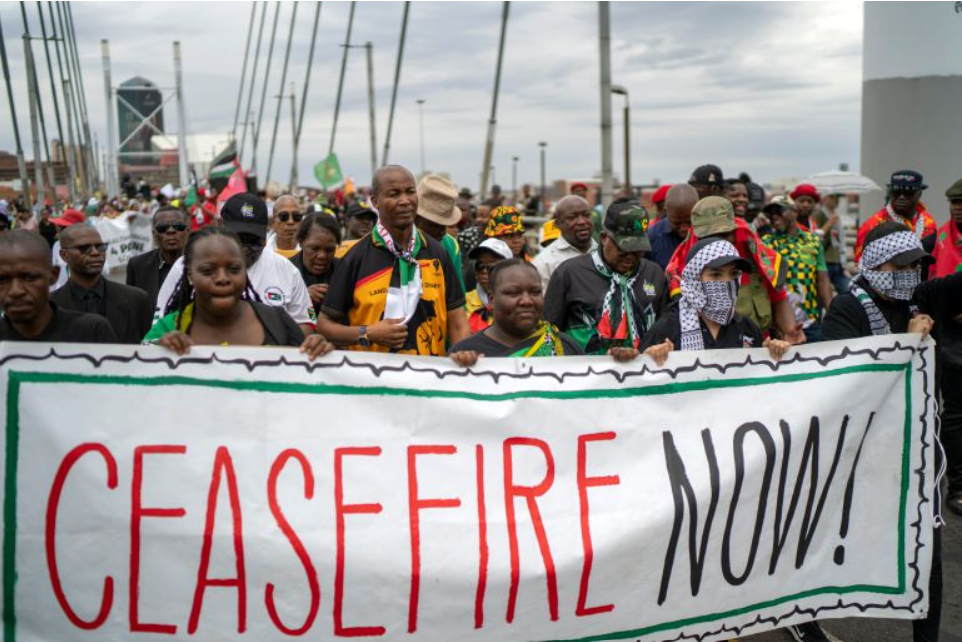Tag: Solidarity
-

Solidarity Worldwide: actions, protests and initiatives for Palestine around the globe
As the Israeli army continues its genocidal war on Gaza, and as the Israeli occupation forces and settler militias carry out ethnic cleansing in the West Bank and East Jerusalem, people around the world are taking to the streets, engaging in direct actions and BDS (Boycott, Divest, Sanction) and pressuring their governments to enforce an…
-

Call to Action: Join London protest against Israeli demolition ‘charity’ Regavim
On September 1st, UK Lawyers for Israel is hosting a talk by Regavim, a pro-settler NGO with charitable status, pivotal in speeding up demolitions of Palestinian homes across the West Bank and displacement of Bedouin villages in the Negev. What is Regavim? Regavim, ‘dedicated to the preservation of Israel’s land’, petitions courts to demolish homes…
-

ISM stands in solidarity with the people of Kashmir
August 16 | International Solidarity Movement | Statement of Solidarity We, the International Solidarity Movement, express our solidarity with the people of Kashmir as they resist the annexation and occupation of their land by Indian military forces. We recognize the same methods of oppression and occupation used by the Israeli government in Palestine being…
